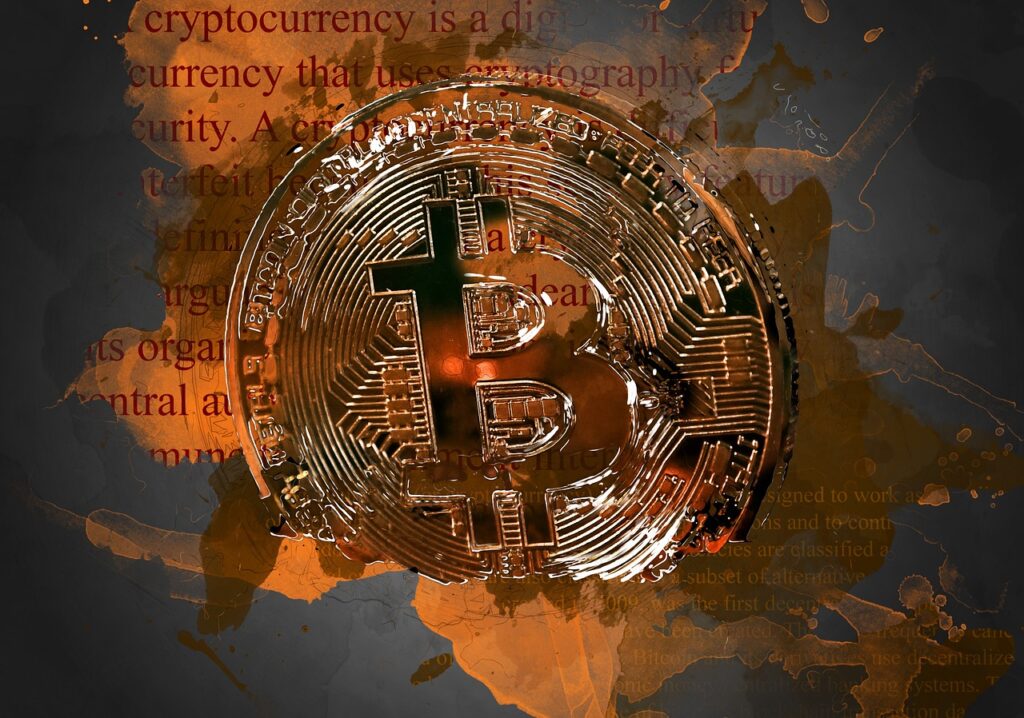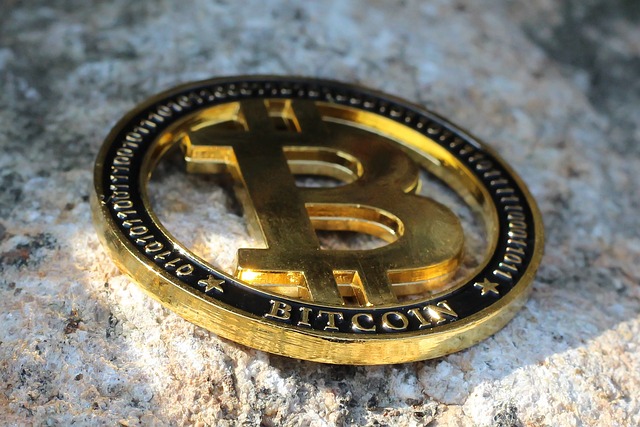From Wall Street to DeFi: Navigating the Transition
From Wall Street to DeFi: Navigating the Transition

The Traditional Financial System: A Brief Overview
The traditional financial system has long been the backbone of economies worldwide. It consists of banks, credit unions, insurance companies, and other financial institutions that facilitate the flow of money and the conduct of business. These institutions have played a crucial role in providing liquidity, stability, and financial services to individuals and businesses alike.
One key feature of the traditional financial system is its centralized nature. It operates through intermediaries, such as banks, who act as trusted third parties in financial transactions. This centralization allows for regulation, oversight, and the establishment of standards that ensure fairness and security. Additionally, the traditional financial system relies heavily on legacy infrastructure, including brick-and-mortar banks and physical cash, to facilitate financial operations. While it has served us well for decades, the traditional financial system is not without its limitations and challenges.
The Rise of DeFi: What You Need to Know
Decentralized Finance, or DeFi, has emerged as a revolutionary force in the financial world. Unlike the traditional financial system, which relies on centralized institutions such as banks and intermediaries, DeFi operates on a decentralized network of smart contracts and blockchain technology. This innovative approach has opened up a whole new realm of possibilities, offering individuals greater financial autonomy and control.
One of the key features of DeFi is its accessibility. Unlike the traditional financial system, which often requires extensive paperwork and approval processes, DeFi platforms are open to anyone with an internet connection. This inclusivity allows individuals from all walks of life to participate in a wide range of financial activities, such as lending, borrowing, and trading, directly from their own devices. Moreover, the transparency and immutability of blockchain technology ensure that transactions are secure and verifiable, eliminating the need for intermediaries and reducing the risk of fraud. With these advantages, it is no wonder that DeFi has gained significant traction and is reshaping the way we think about finance.
Understanding the Key Differences Between Wall Street and DeFi
Wall Street and DeFi, short for Decentralized Finance, may both belong to the financial world, but they diverge significantly in their principles and operations. Wall Street represents the epitome of a centralized financial system, where financial institutions and intermediaries play a dominant role in facilitating transactions. This traditional approach relies heavily on intermediaries, such as banks and clearinghouses, to ensure the smooth functioning of the market. On the other hand, DeFi operates on a decentralized network, primarily powered by blockchain technology. Here, trust is fostered through smart contracts and code, eliminating the need for intermediaries.

One of the primary advantages of DeFi over Wall Street lies in its accessibility. While Wall Street is often associated with exclusivity and restricted access, DeFi aims to democratize finance by allowing anyone with an internet connection to participate. Unlike the centralized financial system, DeFi does not require individuals to go through a complicated account setup process or rely on third-party trust. Instead, users can interact directly with DeFi protocols and applications, enabling financial inclusion for the unbanked and underbanked populations. This accessibility is a significant game-changer and can potentially revolutionize the way we perceive and interact with finance.
Embracing Decentralization: The Core Principle of DeFi
Decentralization lies at the heart of DeFi, setting it apart from the traditional financial system. Unlike the centralized structure of Wall Street, which is governed by a few powerful entities, DeFi operates on a decentralized network where power and decision-making are distributed among its participants. This core principle ensures that no single entity has control over the system, promoting transparency, trust, and fairness.
By embracing decentralization, DeFi aims to democratize finance, making it accessible to everyone without the need for intermediaries. In the traditional financial system, banks and financial institutions hold the keys to your funds, making decisions on your behalf and charging hefty fees for their services. In contrast, DeFi relies on smart contracts and blockchain technology to execute transactions, eliminating the need for middlemen and reducing costs. This decentralized approach empowers individuals to have full control over their funds and engage in financial activities with greater freedom and flexibility.
Exploring the Advantages of DeFi over Traditional Finance
When comparing the advantages of decentralized finance (DeFi) with traditional finance, it becomes evident that DeFi offers several key benefits. One significant advantage is the removal of intermediaries. In traditional finance, intermediaries such as banks or brokers play a central role in transactions, leading to additional costs and potential delays. In contrast, DeFi eliminates the need for intermediaries by leveraging blockchain technology. This direct peer-to-peer interaction brings about faster and more cost-effective transactions, enabling individuals to have greater control over their finances.
Another advantage of DeFi is the increased accessibility it provides. Traditional finance often requires individuals to meet specific criteria set by financial institutions, such as having a certain credit score or meeting minimum deposit requirements. However, DeFi allows anyone with internet access to participate in financial activities. This inclusivity empowers individuals from all walks of life to engage in lending, borrowing, investing, and more, without the limitations imposed by traditional finance. By democratizing access to financial services, DeFi has the potential to foster financial inclusion on a global scale.
Navigating the Transition: Challenges and Opportunities
As the world of traditional finance collides with the decentralized realm of DeFi, individuals and institutions alike are faced with the challenge of navigating this transition. One of the main hurdles is the complex nature of DeFi protocols and platforms. While Wall Street operates within a well-defined and regulated framework, DeFi’s decentralized nature brings a whole new set of rules and requirements. Understanding the intricacies of smart contracts, blockchain technology, and decentralized governance is essential for successfully transitioning to this new financial landscape.
Another significant challenge lies in the lack of trust and credibility surrounding DeFi. Traditional finance has relied heavily on intermediaries such as banks and financial institutions to establish trust between parties. In contrast, DeFi eliminates these intermediaries, relying instead on smart contracts and transparent algorithms. This shift in trust paradigm brings both opportunities and risks. On one hand, it offers greater financial inclusion, accessibility, and the potential for higher yields. On the other hand, it exposes users to vulnerabilities such as smart contract bugs and hacking incidents. Navigating this trust deficit and building confidence in the decentralized world of DeFi is crucial for its widespread adoption and long-term success.
Building Trust in the Decentralized World of DeFi
Decentralized Finance (DeFi) has garnered significant attention in recent years, offering a new way to interact with financial systems. However, one of the major challenges faced by DeFi platforms is building trust among users. Unlike traditional financial institutions, DeFi operates on open-source networks and decentralized protocols, making it crucial for users to have confidence in the platforms they are engaging with.
Trust is at the core of any financial system, whether traditional or decentralized. In the case of DeFi, building trust requires a multifaceted approach. Firstly, transparency plays a vital role in establishing trust. Users need access to comprehensive and auditable information about the protocols they are using, such as smart contract codes, transaction history, and security measures. Additionally, DeFi platforms should prioritize security and ensure robust measures are in place to minimize the risk of hacks and vulnerabilities.

Key Considerations for Making the Shift from Wall Street to DeFi
The financial landscape is evolving, and many investors are considering making the shift from Wall Street to decentralized finance (DeFi). However, it is important to carefully consider a few key factors before taking the plunge.
First and foremost, it is crucial to fully understand how DeFi works and the differences it presents compared to the traditional financial system. Unlike Wall Street, which is centralized and controlled by intermediaries, DeFi operates on a decentralized network using blockchain technology. This means that transactions are transparent and executed without the need for intermediaries, allowing for greater efficiency and cost savings. It is vital to educate yourself on the intricacies of DeFi, including its protocols, smart contracts, and the associated risks involved in this emerging market.
• DeFi operates on a decentralized network using blockchain technology
• Transactions are transparent and executed without intermediaries
• Educate yourself on the intricacies of DeFi, including protocols and smart contracts
• Understand the associated risks involved in this emerging market
Tools and Strategies for Successful Transitioning
Transitioning from the traditional financial system to the decentralized world of DeFi can be an exciting but challenging journey.

Another key strategy for a smooth transition to DeFi is staying informed about the latest developments and trends. The landscape of decentralized finance is evolving rapidly, and new protocols, projects, and opportunities emerge regularly. By actively engaging with the DeFi community, following reputable news sources, and participating in forums and social media discussions, you can gain valuable insights and stay updated on the most relevant information. This knowledge will help you make informed decisions and identify promising investment opportunities within the decentralized finance ecosystem. Additionally, it’s essential to familiarize yourself with the features and functionalities of different DeFi platforms, as each may have unique requirements and user interfaces. This familiarity will enable you to efficiently navigate the DeFi landscape and execute your desired transactions with confidence.
Embracing the Future: The Promising Potential of DeFi
Decentralized Finance (DeFi) has emerged as a groundbreaking technology that has the potential to revolutionize the financial landscape. With its core principle of decentralization, DeFi aims to create a fair and open financial system that is accessible to everyone. One of the most promising aspects of DeFi is its ability to eliminate the need for intermediaries, such as banks and financial institutions. By leveraging the power of blockchain technology, DeFi allows individuals to directly engage in financial transactions, without relying on third parties. This not only streamlines the process but also reduces costs and enhances transparency.
The potential of DeFi extends beyond just transactional efficiency. It also opens up countless opportunities for financial innovation and inclusivity. With DeFi, individuals can access financial services that were previously inaccessible, such as lending, borrowing, and investing. Moreover, DeFi enables the creation and trading of digital assets, known as tokens, which can represent anything from traditional currencies to real estate properties. This tokenization of assets has the potential to democratize investment opportunities, allowing individuals to diversify their portfolios and participate in previously exclusive markets. As DeFi continues to evolve, it holds the promise of creating a more equitable and inclusive financial system, where individuals have greater control over their own financial well-being.
What is DeFi?
DeFi stands for Decentralized Finance, which refers to the use of blockchain technology and smart contracts to recreate traditional financial systems in a decentralized manner.
How is DeFi different from the traditional financial system?
Unlike the traditional financial system that relies on centralized institutions such as banks, DeFi operates on a decentralized network where transactions are transparent and controlled by code rather than intermediaries.
What are the advantages of DeFi over traditional finance?
DeFi offers advantages such as greater accessibility, lower costs, increased transparency, faster transactions, and the ability to earn passive income through various decentralized applications (DApps).
What challenges and opportunities come with transitioning to DeFi?
Transitioning to DeFi can be challenging due to the learning curve, regulatory uncertainties, and potential security risks. However, it also presents exciting opportunities for financial innovation, inclusivity, and the democratization of finance.
How can trust be built in the decentralized world of DeFi?
Trust can be built in DeFi through the use of audited smart contracts, decentralized governance models, reputation systems, and community-driven initiatives to ensure the security and reliability of the platforms.
What should be considered when making the shift from Wall Street to DeFi?
When shifting from Wall Street to DeFi, it is crucial to understand the risks involved, conduct thorough research, diversify investments, and start with small amounts to familiarize oneself with the ecosystem.
What tools and strategies can facilitate a successful transition to DeFi?
Tools such as decentralized wallets, DApps, and blockchain explorers can help navigate the DeFi landscape. Strategies like yield farming, liquidity mining, and staking can be employed to maximize returns and actively participate in the ecosystem.
What is the promising potential of DeFi?
DeFi has the potential to revolutionize finance by providing financial services to the unbanked, reducing the wealth gap, enabling global financial inclusion, and challenging the dominance of traditional financial institutions.
Todays Featured Product:
Buy, exchange and grow your crypto securely with a Ledger hardware wallet, combined with the Ledger Live app. It’s never been easier to keep your crypto safe and accessible. Buy direct from Ledger.com and get todays Special Offers Here.




